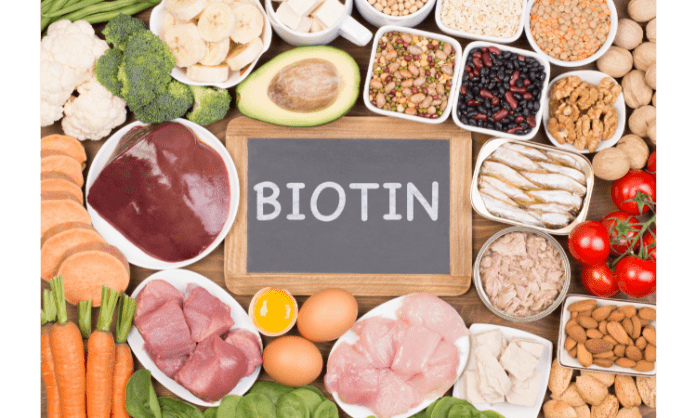
Biotin is a water-soluble vitamin that plays an important role in numerous bodily functions. A deficiency in biotin can lead to a variety of symptoms, including hair loss and brittle nails. The primary cause of biotin deficiency is poor diet, but there are other factors that can lead to insufficient levels of this important nutrient. In this article, we will discuss how you can prevent or reverse a biotin deficiency and the best ways to increase your intake of this essential vitamin.
What is Biotin?
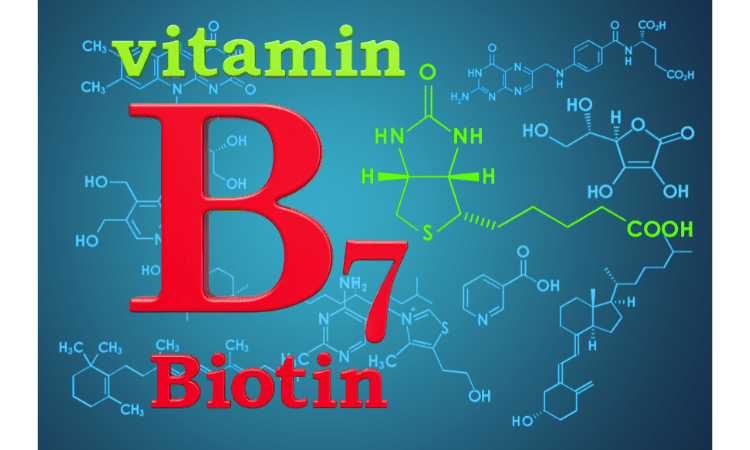
Biotin is a water-soluble vitamin that is necessary for the metabolism of fats, carbohydrates, and proteins. Biotin, also known as vitamin H, is an essential water-soluble B vitamin. It also plays an important role in energy production and the synthesis of fatty acids, amino acids, and DNA.
Biotin deficiency is rare but can occur in people who have certain health problems or those who follow a strict diet that eliminates foods high in biotin content.
Why is Biotin important?
Biotin is a water-soluble vitamin that is naturally found in many foods. It helps your body metabolize fat and carbohydrates. Biotin is also essential for the growth of cells, as well as DNA synthesis and repair.
In addition to being a nutrient we get from our diet, biotin can be made by intestinal bacteria in your gut. Biotin plays a role in the production of fatty acids that are essential for energy production. It also helps break down glucose (sugar) into energy. But if you have an imbalance of yeast overgrowth (candida) or any other issue affecting the health of your colon, you may have trouble producing adequate amounts of this important nutrient on your own—leading to poor metabolism and symptoms like hair loss or skin problems.
What is Biotin Deficiency?
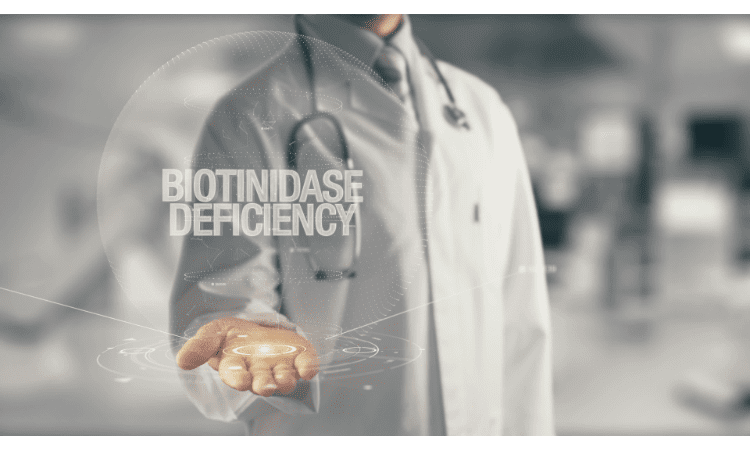
Biotin deficiency is a rare condition that can be originated by a number of factors, including an unhealthy diet and an underlying health condition.
A biotin deficiency occurs when your body does not get enough biotin for proper cell growth and metabolic processes. When this happens, you may develop symptoms such as hair loss and skin rashes. These symptoms are usually temporary if you correct the underlying factor of your biotin inadequacy —that is if you begin getting enough biotin in your diet or taking supplements to correct the problem with your metabolism. The most common factor of biotin deficiency includes eating too little protein or raw egg whites (due to salmonella contamination), taking antibiotics for long periods of time (which can disrupt intestinal flora), having HIV/AIDS, or undergoing chemotherapy treatment for cancer with certain medications (which reduce absorption).
What is the cause of Biotin Deficiency?
Long-term dieting

Long-term dieting can also be a sign of biotin deficiency. Biotin is a nutrient that helps with the metabolism of fats, proteins, and carbohydrates in your body. If you’re eating fewer calories than usual for an extended period of time, your body will start breaking down muscle tissue for energy instead of fat. This means that you’ll begin to lose weight much faster—but biotin inadequacy can also generate cramping, abdominal pain, nausea, and vomiting as well as diarrhea or constipation due to dehydration from not drinking enough fluids (and from not consuming enough food).
Medications have adverse effects on biotin levels
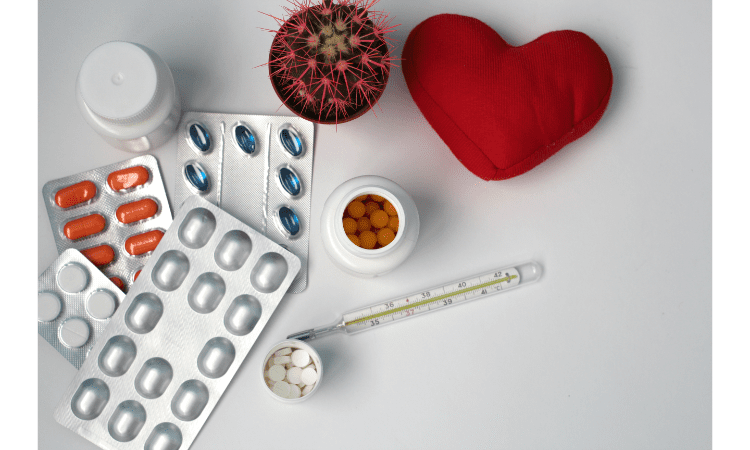
Medications can also cause a biotin deficiency. These medications include antifungals, antibiotics, anticonvulsants, antidepressants, and anti-epileptics. If you’re taking any of these medications and are experiencing hair loss or other symptoms of a Biotin inadequacy, talk to your doctor about alternative treatments or whether it’s possible to switch medications altogether.
Pregnancy

Pregnancy can be a reason for biotin deficiency. Biotin, also known as vitamin H, is essential for fetal development and cell growth. A severe biotin inadequacy during pregnancy may result in birth defects or miscarriage. It’s important to take a prenatal vitamin while pregnant because most women don’t get enough of this nutrient from food alone.
Smoking

Smoking can originate a biotin deficiency. The reason that smoking reduces the amount of available biotin in your body. Smoking affects your metabolism.
Smoking doesn’t just reduce the amount of available biotin—it also lowers levels of other nutrients like folic acid, vitamin C, and vitamin E. If you’re a smoker who’s noticing symptoms of a biotin inadequacy (or if you are concerned about getting one), it may be helpful for you to cut down on tobacco use and see if that improves things for you.
IV Feeding
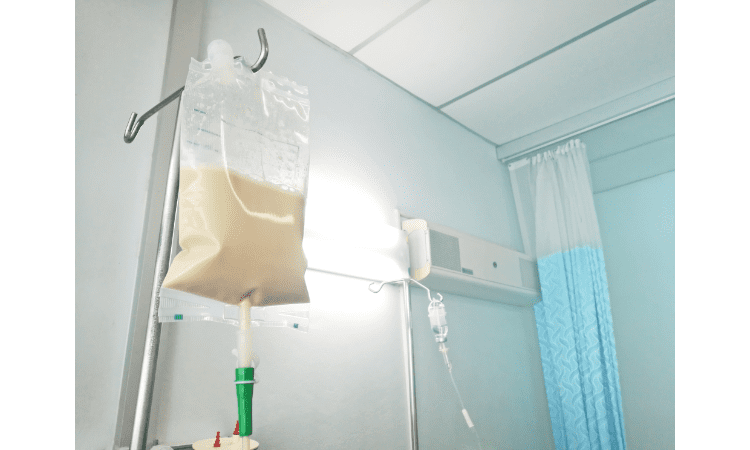
You may be given an IV tube when you are admitted to the hospital, and this is one of the most common ways that people get Biotin inadequacy. However, intravenous therapy is also done in clinics and homes.
It may be given to people who cannot eat or drink on their own due to illness or disability. It can also be used if they have problems with their digestive system or cannot absorb nutrients from food properly, such as those with Crohn’s disease or celiac disease.
Biotinidase deficiency (BTD)

Biotinidase deficiency (BTD) is a rare genetic disorder characterized by a deficiency of the biotinidase enzyme. It originated from mutations in the BTD gene. The BTD gene provides instructions for making an enzyme called biotinidase, which plays a role in processing certain fats and amino acids (small molecules containing carbon, hydrogen, oxygen, nitrogen, and sometimes sulfur).
In people with this condition, a lack of biotinidase originates a buildup of substances that are normally processed by this enzyme. The buildup causes symptoms such as severe psychomotor retardation; muscle weakness; loss of coordination; seizures; and brain abnormalities that result in mental disability.
What are the symptoms of Biotin Deficiency?
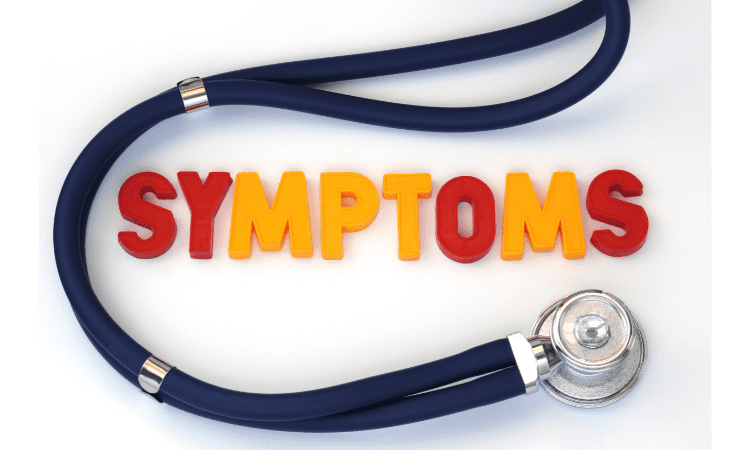
Biotin deficiency can originate a variety of symptoms, including:
- Hair loss
- Skin problems
- Numbness in hands and feet (called peripheral neuropathy)
- Depression or anxiety
- Fatigue
(This is one of the most common symptoms of biotin inadequacy.)
Other symptoms include :
- Loss of appetite (anorexia)
- Constipation
- Red Eye, Hearing loss, lethargy
Biotin rich foods

To maintain a healthy level of biotin, you’d want to consume between 30 and 50 micrograms per day. This can be done through the foods you eat. Some good sources that contain biotin:
- Sunflower seeds
- Almonds
- Avocados
- Mushrooms
- Lentils and legumes (like peas, beans, or chickpeas)
- Cooked Eggs
What are the diseases caused by Biotin Deficiency?
The following are the most common diseases that originated from Biotin deficiency:
- Neurological disorders. The neurological symptoms of biotin deficiency can affect your memory and mental function, and may even cause seizures.
- Gastrointestinal disorders. Biotin deficiency originates from gastrointestinal problems such as diarrhea and nausea. These symptoms are usually accompanied by weight loss in some cases.
- Cardiovascular diseases. The cardiovascular system is affected by biotin deficiency, which can result in high cholesterol levels, high blood pressure, and atherosclerosis (a condition where plaque builds up on the walls of your blood vessels).
- Skin disorders. People with a biotin deficiency have been observed to have dry skin and hair loss as well as pimples around their nose or mouth area due to an increase in sebum production that clogs pores rather than being absorbed into cells where it should go for healthier skin! This condition is called steatosis (pronounced “steatosus”), which means “fatty liver disease.”
- Alopecia is also another disease that might be caused by a biotin deficiency. Alopecia is a condition whereby hair falls out from areas on your body where it normally does not grow (such as the scalp). If you have alopecia and suspect that it might be linked to a biotin deficiency, talk with your doctor about getting tested for this vitamin deficiency before starting any treatment plan or regimen.
What is the prevention of Biotin Deficiency?
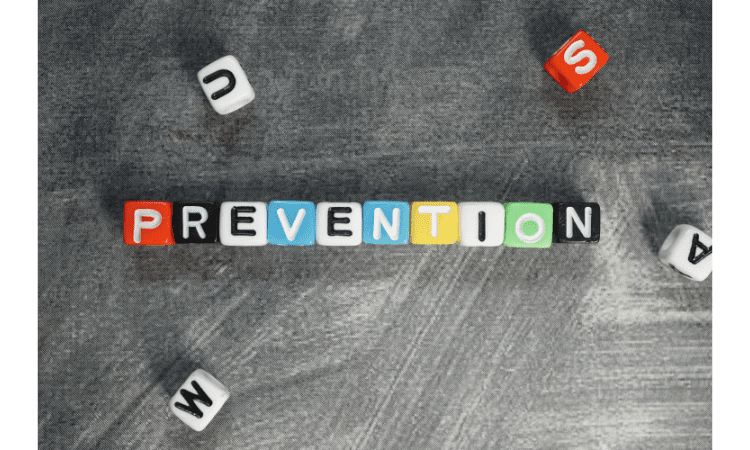
- Eat a healthy diet. The best way to prevent a biotin deficiency is by eating a balanced diet that includes plenty of fruits, vegetables, and protein. Biotin is found in cauliflower, egg yolks, broccoli, brussels sprouts, and almonds. You can also take biotin supplements if you’re concerned about getting enough of it from food alone.
- Avoid alcohol or caffeine. Alcohol and caffeine can interfere with the absorption of biotin in your body so it’s best to avoid them if you’re concerned about having a deficiency or are trying to treat one that you’ve already developed.
- Exercise regularly: Exercise increases blood flow throughout your entire body which brings more oxygen into your cells and helps with overall health including mental health issues like anxiety disorders or depression (which may cause people not to want to care for themselves). However, as mentioned above there are some side effects associated with taking too much Biotin so make sure you follow directions carefully when taking any biotin multivitamin including this one.
Conclusion
Biotin is an essential vitamin that plays an important role in hair, skin, and nail health. Biotin can be found in a variety of foods such as mushrooms, eggs, whole grains, and nuts. A diet rich in biotin will help keep your body healthy and strong. If you have a deficiency in biotin it can lead to hair loss or brittle nails which may result from poor blood circulation due to low levels of this vitamin. You must need to have professional medical advice from experts before taking any biotin supplements.











